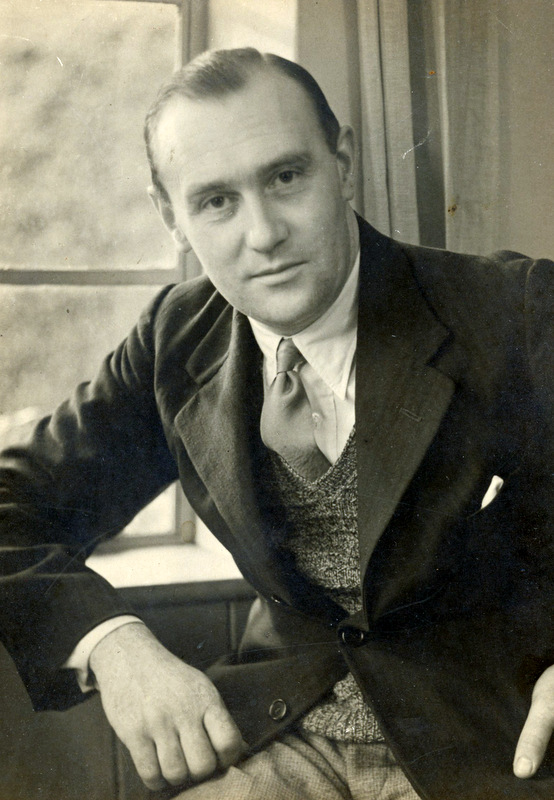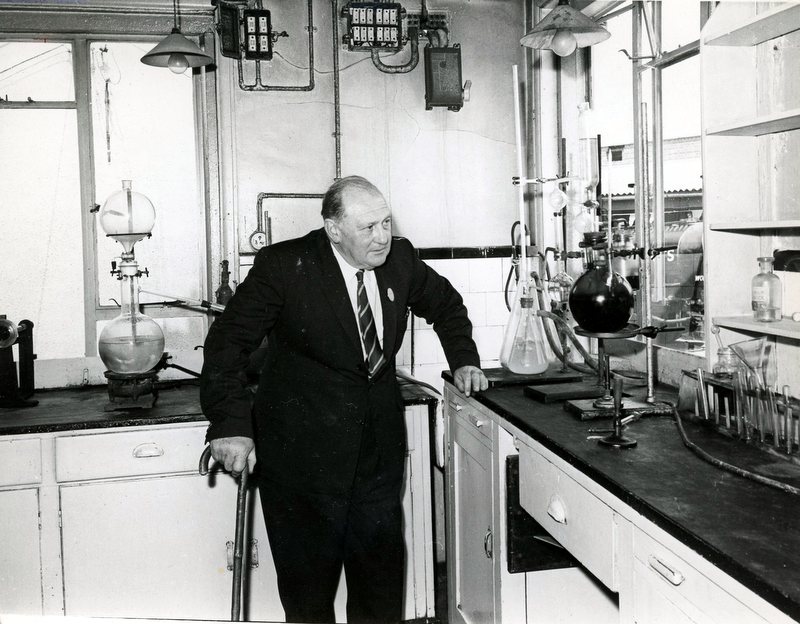When the 1939 Register of the population was made, at the outbreak of World War Two, the vast majority of the adult population of Wickhamford were engaged in horticulture or agriculture. One of the exceptions was Percival Saxby Dewey, who was living at 1 Manor Cottages, Wickhamford Lane, with his wife and small daughter, Jane. He had married Elena Mary Relf in 1936 and their daughter, Jane, was born in November of that year.
Family Background

Percival was the son of George William and Fanny Margaret Dewey and at the 1911 census they lived in Chipping Campden, with his older brother, George Oscar, b 1889. At that time, both of his parents were Elementary School Teachers, working for the County Council and his brother was a cycle and motor engineer, working from home on his own account.
That year, Percival Dewey was awarded a First Class Certificate in the Diocese of Gloucester Band of Hope prize-giving, for the Church of England Temperance Society.
Earlier, Percival’s parents were Headmaster and Headmistress at Brompton Regis, Somerset, but eventually moved to Ebrington in 1894, where they stayed until 1904. During that time, he was Headmaster at Campden Elementary boys’ school and she was head of the girls’ department (according to his obituary in 1931). Percival attended Campden Grammar School, where his interest in chemistry was fostered.
There is no record of either son serving in the First World War. George Oscar Dewey died in January 1915, in Ebrington, aged only 25 years. He died of heart failure having suffered from chronic asthma and acute bronchitis. Percival Saxby Dewey had suffered from osteomyelitis as a child, which resulted in him needing to wear a surgical boot for the rest of his life, as one leg was shorter than the other. At the 1921 census, Percival Dewey resided in Wooburn, Buckinghamshire, as a boarder in the household of Frank Pitcher, a farmer and publican. He was employed as a ‘Works Chemist in Paper Mill’, at Wiggins Teape & Co., Paper Makers of Glory Mill, Wooburn. During the War, the Mill started to make photographic paper for use by the military. (It is possible that, irrespective of his disability, which would probably have precluded him from joining the Military, Dewey was considered of such value that he was exempted from War service.) Later, Electoral Registers show him as living in Gloucestershire during the mid-1920s to late 1930s, apart from his being listed in Wandsworth, London in 1929.
In October 1931, Percival Dewey was mentioned in the Tewkesbury Register, as entertaining children with a magic lantern at a party in Broad Campden. On 3rd May 1936, he married in Moreton in Marsh Registry Office. At that time, he was a commercial traveller and his wife, Elena Mary Relf, of Wooburn, was a Science Mistress.
During the 1930s, he worked periodically for the BBC following his taking part in a broadcast form Chipping Campden on 17th October 1934. This work included acting in radio plays, including an item called “Paul Temple and the Front Page Men”. His authorship included a guide to Chipping Campden and he also wrote local folk stories, including one – “The Campden Wonder” – which was possibly broadcast by the BBC. He assisted H. J. Massingham with writing his book, “Wold Without End” (published in 1938) and was acknowledged by the author who, in the Foreword, “expresses his warmest thanks to his friend Mr P. S. Dewey of Chipping Campden for the great service he has done the book in writing down many of the modern folk-tales in it”.
The Deweys in Wickhamford
A number of residents in Wickhamford in 1939 had come to the village to avoid possible War injury in areas of the country more susceptible to bombing, but the Dewey family seem to have only moved locally. Percival Saxby Dewey’s occupation was entered in the Register as an analytical chemist and author. His place of work is unknown, but the research station in Chipping Campden is one possibility. Founded in 1919, this was where work was done on the processing of canned foods.
The only newspaper item reporting an event in his life was in 1939. He had been summoned to appear at Evesham County Petty Sessions in March for driving without a Road Fund licence or an up-to-date driving licence. He had been caught in Badsey on 5th January, by P.C. Haines, who had seen his car exhibiting a licence which had expired at the end of 1938. Dewey stated that he had failed to renew the licence due to financial difficulties. P.C. Haines visited Dewey on 28th February and found that his driving licence had expired in July 1938, ‘due to an oversight’. In court Dewey was fined £1 on each count.
Post-Wickhamford

Percival and Elena Dewey seem to have moved on from Wickhamford in around 1940 as they had a son, Peter J. S. whose birth was registered in the North Cotswold District in mid- 1941. There is also a birth registered in Bilston, Staffs in late 1944, for another son, Simon Relf Dewey. During the Second World War, Percival Dewey worked for the Air Ministry Aeronautical Inspection Directorate, partly at Armstrong Whitworth’s, in Coventry, then office-based in Colmore Row, Birmingham. His wife, Elena and daughter, Jane, joined him in Coventry, where they endured bombing raids by the Luftwaffe.
In 1954, at the time of his mother’s death, he and his wife were living in Tettenhall, Wolverhampton. Percival Saxby Dewey died on 24th December 1983, his wife Elena having died in Witney, Oxfordshire in 1976. At the time of his death he was living at a care home, Spencer Court, Witney.
Tom Locke – July 2023 (additional information added March 2024)
Acknowledgement
Thanks are due to Percival Saxby Dewey’s son, Simon Relf Dewey, who made contact after seeing the original article and supplied more information on his father’s life and two additional photographs.
